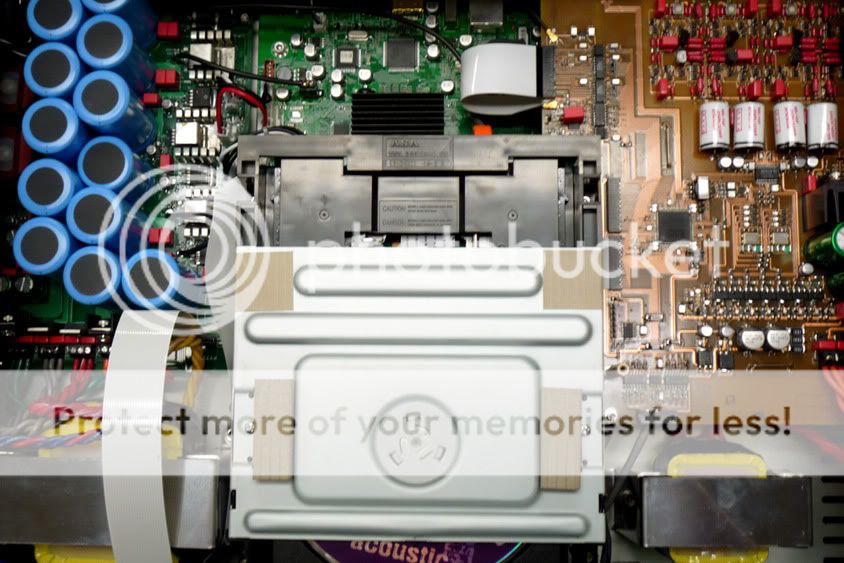SB
Guest
- Joined
- Jul 20, 2009
- Posts
- 130
- Likes
- 14
AVS Forum - View Single Post - Ayre DX-5 bluray player
Quote:
Wait, his "opinions" get worse.
AVS Forum - View Single Post - Ayre DX-5 bluray player
Quote:
Of course he does not explain why, since he has not even measured the jitter in the DX-5 he is just blowing hot air.
AVS Forum - View Single Post - Ayre DX-5 bluray player
Quote:
Sorry charles but it looks like everything you have said is a guess.
AVS Forum - View Single Post - Ayre DX-5 bluray player
Quote:
To his knowledge, looks like to me charles needs to do some more reading.
Quote:
| But there is no HDMI D/A converter on the planet that sounds even half as good as the analog outputs of the DX-5. So if the customer only wants it for movies, that is a great plan. For years we have all been listening to 5.1 channels of low-bit-rate MP3, and it has been just fine. The visuals make the sound quality less important for watching movies. Until someone makes an SSP with Audio Rate Control, discrete analog circuitry, and volume controls at least as good as our $3500 preamp (FET switches and metal film resistors), then anybody who listens to music even once in a while shouldn't mind spending a couple of thousand dollars extra for great music playback. And they will be still be saving money. To make an SSP with the features noted above would probably cost $25,000 or more. Why spend that much money to get eight channels of incredible sound when eight channels of pretty good sound is all you need for movies? Then you can save your money for where it counts -- those two channels of music playback. |
Wait, his "opinions" get worse.
AVS Forum - View Single Post - Ayre DX-5 bluray player
Quote:
| Yes, but where does the blame lay? I say with the SSP's that butcher the incoming analog signal in countless ways. And how good will the HDMI connection actually sound? HDMI has far worse jitter than S/PDIF. We have never made a DAC with S/PDIF because it is a flawed format that inevitably degrades the sound quality of the signal. You can read more about this topic in this white paper: Until such an SSP exists, the only way to get truly high performance music reproduction is to use the analog outputs of the DX-5 (or other single-box player) into a stereo preamp that has a processor passthrough mode. This will serve 99.99% of all music available today. |
Of course he does not explain why, since he has not even measured the jitter in the DX-5 he is just blowing hot air.
AVS Forum - View Single Post - Ayre DX-5 bluray player
Quote:
| c) Nearly all existing SSP's are "flawed" because due to cost and space constraints, they use high-feeback op-amps in the audio signal path and single-chip op-amp-based IC volume controls. There are a few exceptions. The Theta Casablanca uses a system of FET switches and metal film resistors for its volume control. I believe (but am not sure) that the audio signal path is fully discrete, although it also uses feedback. The Levinson No.40 has a different kind of volume control. I believe (but am not sure) that it is the MDAC style of volume control that they used to use in their No.38 preamp. I am unsure of the other details of the No.40's design. The original version was released shortly before the company imploded. I have heard snippets that the version put back into production a couple of years later had some changes. b) One can take a jittery signal, such as HDMI or S/PDIF, and by throwing money at it, reduce the level of jitter. The more money you throw at it, the lower you can get the jitter. Theta has been building digital products for over 20 years and has some of the best jitter-reduction circuitry around. But, as I said before, that is just a guess. |
Sorry charles but it looks like everything you have said is a guess.
AVS Forum - View Single Post - Ayre DX-5 bluray player
Quote:
| The final thing to consider is that (to the best of my knowledge) Ayre is still the only company that provides total isolation between the video and audio systems. That is one feature that is very unlikely to ever become common, and yet it remains one of the most important determinants of system performance (both audio and video). |
To his knowledge, looks like to me charles needs to do some more reading.









